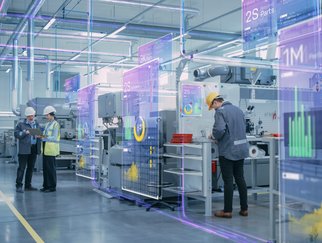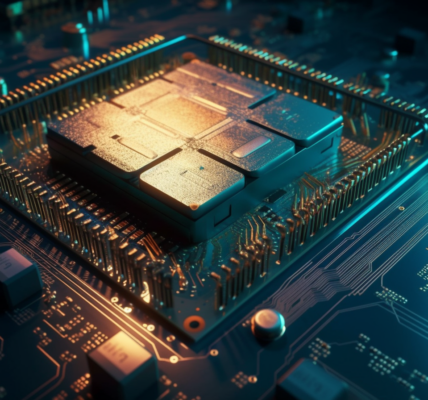How AI is Transforming Business Processes
The integration of artificial intelligence (AI) into business processes has revolutionized how companies operate. By leveraging advanced algorithms, machine learning models, and natural language processing techniques, businesses are achieving unprecedented efficiency and innovation.
Key Industries Thriving with AI
- Customer Service: Chatbots powered by AI provide 24/7 support, reducing the need for human intervention.
- Operations Management: AI optimizes supply chain management, inventory control, and resource allocation to enhance productivity.
- Finance: Predictive analytics enable smarter risk assessment, fraud detection, and investment strategies.
Case Studies of AI Implementation
Microsoft’s AI in Business Processes
Microsoft has demonstrated the transformative potential of AI through several initiatives:
- AI-Powered Insights: Enhances decision-making across departments by analyzing vast amounts of data.
- Efficient Automation: Reduces manual tasks, saving time and resources.
Google’s Role in AI-driven Automation
Google’s contributions include:
- DeepMind: A state-of-the-art AI engine driving innovation in various sectors.
- AI in Healthcare: Enhancing diagnostics, personalized treatment plans, and operational efficiency through advanced algorithms.
Future Trends and Innovations
The future of AI integration into business processes is poised for significant advancements, particularly with the advent of large language models (LLMs) like ChatGPT. These models promise enhanced creativity, critical thinking, and contextual understanding, further elevating automation capabilities.
Case Studies: AI in Action
Microsoft’s Journey
Microsoft’s adoption of AI across diverse sectors underscores its versatility:
- AI-Powered Insights: Enhances decision-making by providing actionable insights.
- Efficient Automation: Reduces manual tasks, streamlining workflows and improving productivity.
Google’s Impact
Google’s influence extends beyond search, with AI driving advancements in:
- DeepMind: A groundbreaking AI engine that pushes the boundaries of computational intelligence.
- AI in Healthcare: Enhancing diagnostics, treatment plans, and operational efficiency through advanced algorithms tailored for healthcare.
Future Trends: Embracing LLMs and Conversational AI
LLMs and Conversational AI
The rise of large language models (LLMs) such as ChatGPT signifies a new era in AI-driven automation. These models offer:
- Enhanced creativity, critical thinking, and contextual understanding.
- Applications beyond traditional automation, including creative problem-solving and innovation.
Microsoft’s Future Vision
Microsoft envisions a future where LLMs are seamlessly integrated into business processes, contributing to:
- Innovative Solutions: Enhancing decision-making with AI-generated insights.
- Operational Excellence: Achieving higher efficiency through intelligent automation.
Conclusion: Driving Business Innovation
The convergence of AI and automation is driving unprecedented innovation across industries. By embracing these technologies, businesses can unlock new possibilities, enhance operational efficiency, and deliver superior customer experiences. The future holds immense potential as AI continues to evolve, promising even more transformative impacts on how we work and live.
Call to Action
As businesses explore the vast opportunities presented by AI-driven automation, it is crucial to stay ahead of technological advancements while maintaining a focus on ethical considerations and sustainability. By integrating AI thoughtfully, companies can achieve sustained competitive advantage and deliver exceptional value to their stakeholders.
This structured overview encapsulates the transformative impact of AI across various sectors, highlighting key initiatives and future trends, providing a comprehensive understanding of how AI is reshaping business processes.




